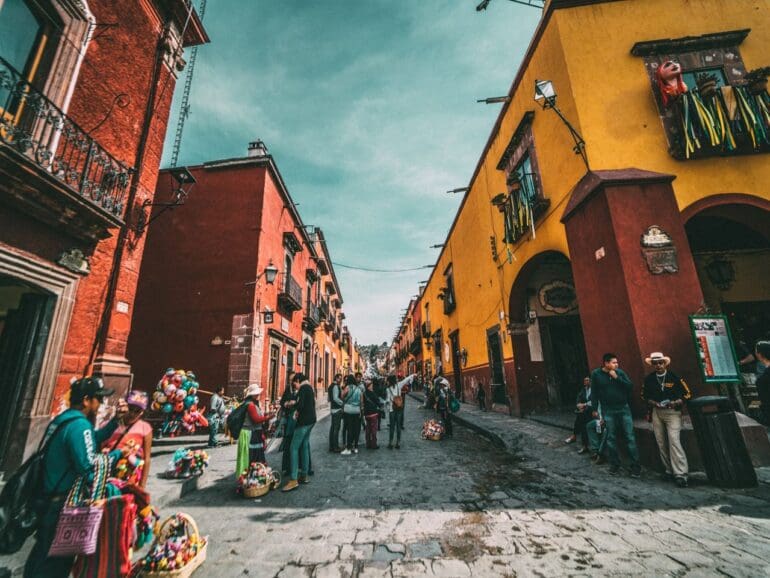In two years, Spin has quickly carved out a place for itself as one of Mexico’s most relevant fintech players.
Owned by Femsa, the Coca-Cola bottler, and distributor in the region, Spin is up for one of the most challenging tasks. In a country with some of the highest underbanked rates in the region, it is going straight after the financially excluded.
It is planning to do so with a hybrid proposition. While it offers a wide range of digital services such as debit cards, payments, and remittances, it does so by leveraging strongly on one of Mexico’s most coveted physical networks—the convenience store chain Oxxo, which has become ubiquitous throughout the country.
The strategy seems to be paying off. The digital wallet initiative was launched in early 2021, and last year, it obtained a fintech license from the Mexican regulator. The company reported 4.3 million users by Q3, and its goal is to grow to 10 million this year.
Strength lies in the numbers — 20,000 Oxxo stores sprawl around 1,100 cities. In 470 of them, the company says, the banks do not even have a presence.

“Mexicans can make withdrawals and deposits in a network that no one in the country currently has,” says Ricardo Olmos, general manager at Spin by Oxxo, in an interview with Fintech Nexus.
What is Spin’s competitive advantage in the Mexican market?
First of all, capillarity. Today we have 20,000 stores nationwide. We are present in more than 90% of Mexican municipalities in a context where bank branches are lacking in many places. There are municipalities very close to the State of Mexico where you can’t find a single branch. And we are not even talking about remote areas. The bank with the most branches has 2,000. The one with the most ATMs perhaps reaches 11,000. At the Oxxo store, Mexicans can pay for services, deposit, or withdraw cash. It takes five minutes for them to onboard digitally. For that audience, the convenience factor is invaluable. Otherwise, they would have to spend maybe an hour or two going to a branch.
What is the opportunity to serve the underbanked in Mexico?
More than 64 million people in Mexico have been excluded from the financial system. This is 51% of the (adult) population that has never had a banking product in their lives. There is a window of opportunity to deliver a first financial product comprised of a virtual wallet and an international debit card.
Oxxo is still a physical network. What is the challenge in bringing Mexicans to Spin’s digital ecosystem?
The store is significant for acquisition, but we also draw interest through digital channels. Today, we add value mainly through the store. There is a saying that says, “There is an Oxxo in every corner.” And rightly so. We open new ones every week. However, the fact that it is a digital product means that everything can be done without necessarily going to Oxxo. The level of dependency is lower today. Mexicans can pay at any physical or digital business from the first day.
How does Spin leverage Oxxo’s brand recognition?
We have an asset. That is 22 million users in Oxxo’s loyalty program. Today we are working on capitalizing on those clients. In addition, 70 million Mexicans pass through the stores every month. Between 13 and 15 million people daily. Many of them have never had a financial product in their lives. We are going to a segment where banks have not had interested for decades. We combine the physical capillarity with a technological base as a fintech.
What is the main obstacle you face?
Cash is still king. It is our main competitor. 70% of Mexicans receive their salaries in cash. The challenge lies in digitizing those clients and offering them a strong enough incentive. Not only to digitalize that cash but also provide them with a real alternative to day-to-day payments.
What are the main reasons why it is difficult to advance with digitalization in Mexico?
Without a doubt, safety is one of the main factors. Mexico is one of the first countries worldwide in terms of fraud. For that reason, Mexicans don’t embrace digital products and regard cash as somehow more secure when it is not. Secondly, there is the issue of financial education. Few in Mexico have a bank account, and even fewer have taken a financial education course. The third is (lack of) convenience.
How does Spin plan to tackle the remittance business in Mexico?
A digital remittance product that does not allow people to withdraw cash to make everyday payments is a big problem. Today, through Spin and Oxxo’s capillarity, we can do it. That is why we believe our remittance product has an exceptionally high probability of success. Oxxo today is already one of the primary remittance payers in Mexico. If you incorporate the digital part, where you can have your money in the app, you have the best of two worlds.


